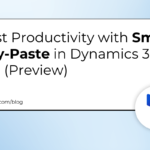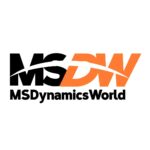The Human Touch in Digital Transformation
In sales, success is fundamentally about people – building relationships and fostering trust. However, the landscape of B2B sales is evolving rapidly, and digital transformation is reshaping how business is conducted. For Operations leaders aiming to meet growth and performance objectives, it’s time to explore the role of sales technology, particularly CPQ solutions, in addressing pain points within the manual sales process.
Consider this staggering statistic: 85% of sellers have reported losing or delaying deals because their contact within the company changed roles or left the company altogether. That means those updated price quotes or contracts are trapped forever in an email inbox, never to be seen again. While sales has always been rooted in relationships and personal touch, there comes a point where automation can provide substantial benefits.
The Challenges of Manual Sales Processes
The manual sales process is riddled with challenges, keeping sales teams achieving automated and predictable operations. Creating one-off quotes manually can impede sales performance and pose significant obstacles to achieving company success.
Let’s examine a few of these bottlenecks in a manual sales pipeline.
The Impact of Time and Efficiency
Time is a precious resource in sales. Sales professionals, who are often perpetually busy, need to ask how much time they actually dedicate to selling. Research shows sales reps spend as little as 30% of their time engaged in actual selling activities. The remainder of their time is consumed by administrative tasks, data input, and the pursuit of approvals and signatures.
Freeing up time for selling directly impacts the bottom line. For example, suppose your sales reps are entangled in locating the latest version of an agreement or chasing approvals and signatures,.In that case, they are investing valuable time in contract management rather than selling.
Quote generation, another time-consuming aspect of the manual process, can be equally costly. In a competitive landscape where 35-50% of sales go to the vendor who responds first, the speed of generating an accurate quote is pivotal to success.
The Human Equation
Another challenge with the manual sales process is its inherent human nature. Salespeople make mistakes, and those mistakes can have dire consequences. Research shows that a 1% increase in price can boost EBITDA (Earnings Before Interest, Taxes, Depreciation, and Amortization) by 22%. Conversely a 1% drop in price, with costs and other factors staying the same, has a similarly significant but detrimental effect on profits.
Constantly changing product offerings, pricing, and discounts introduce additional complexity. A team relying on outdated pricing information or a sales manager offering deep discounts to meet quotas can have a significant impact on profitability.
It’s not uncommon to find teams utilizing different versions of Excel spreadsheets, typically managed by a single person, which can lead to pricing errors that hurt the bottom line.
The Negative Impact of Manual Sales Processes
Only 33% of sales reps have the power to offer discounts, according to a recent report. Of those, the vast majority admit they are unsure of the margins in the deals they offer to clients – if they even have data on those margins at all. Do you feel comfortable with your reps ‘shooting in the dark’?
Moreover, a protracted sales cycle creates more opportunities for errors and complications. Manual processes hinder the identification of upselling and cross-selling opportunities, as well as the management of subscriptions and renewals. Data analysis and actionable insights are also hampered by manual processes, impacting predictability and forecasting in a competitive market.
Overcoming Manual Challenges with Sales Automation in Dynamics 365 and DealHub CPQ
The way forward lies in sales automation, offering the potential to alleviate these pain points. Sales automation tools, including Configure Price Quote (CPQ) solutions, Customer Relationship Management (CRM) systems, and Contract Lifecycle Management (CLM) tools, hold the key to streamlining and optimizing the sales process.
CPQ (Configure Price Quote) is a powerful sales automation tool that enables sales teams to configure complex products and services accurately, price them based on various factors, and generate professional quotes and proposals swiftly. CPQ tools centralize product information, pricing data, and sales configurations, eliminating the need for manual cross-referencing of spreadsheets or paper catalogs. Additionally, CPQ tools often include intelligent features that suggest upsell and cross-sell opportunities, maximizing revenue potential.
CRM (Customer Relationship Management) software, like Dynamics 365 for Sales, helps businesses manage their interactions with current and potential customers. CRM systems store customer and prospect data, track communication history, manage leads and opportunities, and facilitate collaboration among team members. Often, CPQ and CLM solutions integrate with the CRM solution, making CRM the central hub for all sales activities.
CLM (Contract Lifecycle Management) is software that automates the management of contracts from creation to renewal or expiration. CLM tools simplify the contract drafting, negotiation, approval, and storage processes. These tools provide version control, visibility into contract status, and automated workflows for approvals and signatures. CLM solutions often include e-signature capabilities, allowing contracts to be signed electronically, reducing waiting times and expediting the deal closure process. By automating contract management, CLM tools minimize the risk of errors, ensure compliance with legal requirements, and improve the overall efficiency of the contracting process.
Elevating Sales Efficiency with Dynamics 365 and CPQ
Dynamics 365 (a powerful CRM solution), in synergy with DealHub’s Agile CPQ and DealRoom CLM, represents a paradigm shift in sales efficiency. By embracing these advanced technologies, sales operations leaders can not only automate menial tasks but also drive sales productivity, providing essential data for forecasts and optimization. The result is a streamlined, efficient sales process that accelerates deal closures, paving the way for sustained business growth.



![Best Practices for Maintaining Government Site Reliability// Woman looking at computer center. [Image: Adobe]](https://www.cybercloudintel.com/wp-content/uploads/2024/12/Best-Practices-for-Maintaining-Government-Site-Reliability-150x150.png)




![Best Practices for Maintaining Government Site Reliability// Woman looking at computer center. [Image: Adobe]](https://www.cybercloudintel.com/wp-content/uploads/2024/12/Best-Practices-for-Maintaining-Government-Site-Reliability-768x432.png)

